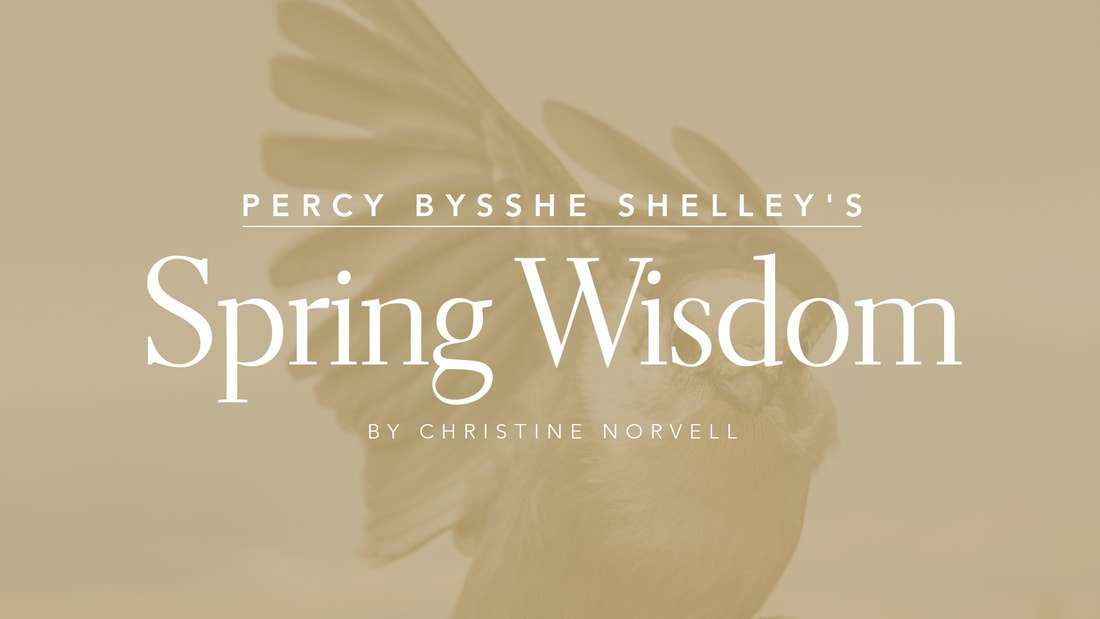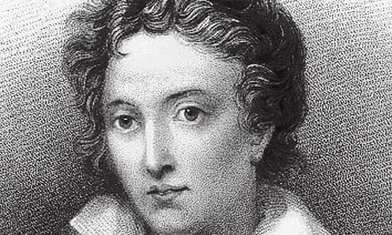 When I first wrote about how to understand poetry in the fall, I heard from so many of you. Some shared suggestions and many more requested ideas. If you missed my first article, see On Teaching My Husband Poetry. Appreciating poetry begins with finding poetry you like, poems that resonate and delight. Though he unarguably had a tumultuous life, Percy Bysshe Shelley writes in an enjoyable and, I feel, understandable way. Don’t dismiss his work because of a few “thees” and “thys.” Read through it once, then twice, to get a feel. One of the things I enjoy about Shelley’s descriptive poetry is that it is leading—he leads you to his thoughts. Poet notes. Unlike other Romantics who might get a bit lost in their creation and idealistic philosophy, Shelley is quite clear. The story goes that as he and his wife Mary, yes Mary Shelley of Frankenstein fame, were on an evening stroll in Italy in 1820, Mary commented on the evensong of the skylark, prompting Shelley’s ode. In celebration of spring, let’s look at this popular poem together. To a Skylark  Illustrated portrait of Percy Bysshe Shelley (1792-1822) Photograph: Hulton Archive/Getty Images Illustrated portrait of Percy Bysshe Shelley (1792-1822) Photograph: Hulton Archive/Getty Images So easy to hear and see and experience, And singing still dost soar, and soaring ever singest. This simple songbird is so like the Heavens he comes from that his notes are like arrows, sharp and pointed at our hearts. This expression of beauty, this skylark, is so unearthly that Shelley asks how we can know it is of the earth. What can we compare it to? He employs simple similes: a poet (himself?), a maiden, a glow-worm, a rose. Each appeals to a different perspective and physical sense. I think Shelley aspired to be as skilled with words as the skylark was with song, an experiential song of pure beauty. .Shelley then returns to a direct tone of command. He wants to know from the skylark itself, Teach us, Sprite or Bird, What sweet thoughts are thine. What are you singing of? Shelley then imagines what the bird might see before he realizes that it cannot love like a human can. That—that is something it cannot sing of, the pain or annoyance of love gone wrong. Yet maybe that is why its song is so pure.
Shelley maintains our love on earth is all the more joyful, more deep even, than what the skylark sings of because we can experience sorrow and pain. Perhaps it is the job of the poet to reveal. Consider two parts: Like a Poet hidden / In the light of thought, / Singing hymns unbidden, / Till the world is wrought / To sympathy with hopes and fears it heeded not. And Thy skill to poet were. I think Shelley aspired to be as skilled with words as the skylark was with song, a song of pure beauty. The British Library also features historical commentary on "To a Skylark." The largest library in the world, The British Library and its offerings can be found here. Comments are closed.
|

 RSS Feed
RSS Feed